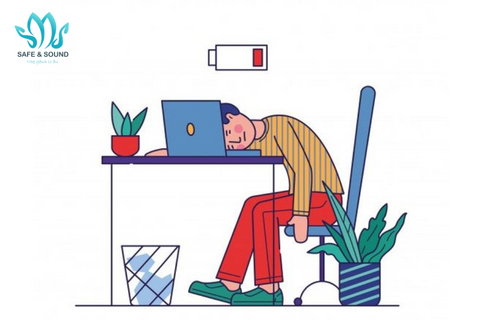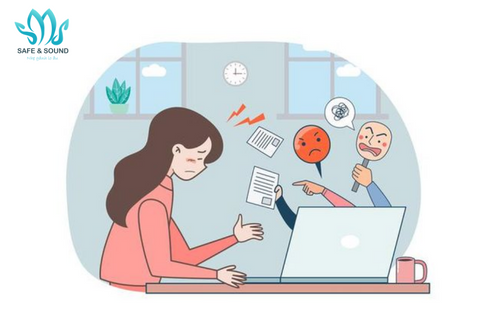Why Do We Procrastinate and What Can We Do About It? — Insights from Psychologists (Part 1)
We’ve all probably experienced the urge to rush through a task that could or should have been done much sooner. According to Fuschia Sirois, PhD, a psychologist at Durha University, procrastination has more to do with emotional regulation than laziness or poor time management skills. She says that repeated procrastination can be harmful to our mental and physical health and is linked to feelings of guilt and shame, and that increasing self-compassion can help us overcome it.
SnS Institute of Psychology and Mental Health
Center for Community Health and Development Research
1. What is procrastination?
Procrastination. No one feels good about it, but the truth is most of us do it from time to time. Maybe you need to finish a big project, an assignment, etc. but you put it off and go to the bathroom, eat out, go out, watch a movie, etc. And when the time is almost up, you start to feel very anxious and scared, panic.
Procrastination is different from doing a task later than planned (perhaps due to an emergency). Procrastination is an unnecessary form of delay. It is a delay that is voluntary and does not really have a valid reason.
2. The nature of procrastination
When we talk about procrastination, we often think that we can teach people how to manage their time better and they will stop procrastinating, or that we can help them gain better self-control, or that we can tell them they are lazy and “scare” them into stopping procrastination. And really, that kind of view is more about looking at the symptoms of procrastination than the causes. In fact, according to psychologists, emotions are at the core of procrastination. And this comes from a lot of research that shows that the types of tasks we procrastinate on are tasks that we dislike. They are things that we find unpleasant, aversive, and can range from simply being boring to feeling physical symptoms (stomach aches, heart palpitations, heart palpitations, nervous tension, and anxiety triggers).

Procrastination has more to do with emotional regulation than with laziness or lack of time management skills.
And so when we look at procrastination in terms of emotion regulation, what we come up with is that we're not avoiding the task itself, what we're avoiding is the unpleasant emotions associated with that task. And so procrastination becomes a way to deal with negative emotions, especially if you're someone who isn't very skilled at managing your emotions effectively, or maybe you're experiencing multiple stressors at the same time. And what procrastination does is it gives you immediate relief.
And this is where some people can get caught in the trap of procrastination almost being a habit or a way of dealing with these unpleasant tasks. That's how emotions get involved. It's really about the emotions we attach to the task rather than necessarily what the task is actually like. Objectively, it's not the unpleasant task, it's our interaction with that task, the emotions that arise from that interaction and how it makes us feel and if it's something unpleasant and we can't get past those emotions, procrastination becomes a way of dealing with that, at least in the short term.

We don't avoid the task itself, what we avoid are the unpleasant emotions associated with that task.
Ultimately, procrastination isn’t a time management problem; rather, it may be a problem with managing unpleasant emotions like boredom or anxiety. But avoiding negative emotions—and important tasks—tends to lead to much worse outcomes in the long run, including more stress and regret. Stay tuned for the next article from Safe and Sound on how to overcome procrastination!
Safe and Sound Clinic - Family health and psychological support
With a team of experienced doctors and specialists, Safe and Sound Clinic is a pioneer in comprehensive health care with health care services from medicine to psychology.
“Early prevention - Timely support - Long-term companionship”.
.png)
If you have any doubts or experience any physical or mental health problems, please contact HOTLINE 0964 778 911 (Phone/Zalo, 24/7) for answers and support as soon as possible!
HOW TO MAKE AN APPOINTMENT for online or in-person consultation with an expert
- At SnS Clinic - IMT Institute
- Or download and schedule a consultation on the Safe and Sound app to manage and track your schedule anytime, anywhere.
Safe and Sound (SnS) - Institute of Applied Medical Technology (IMT)



